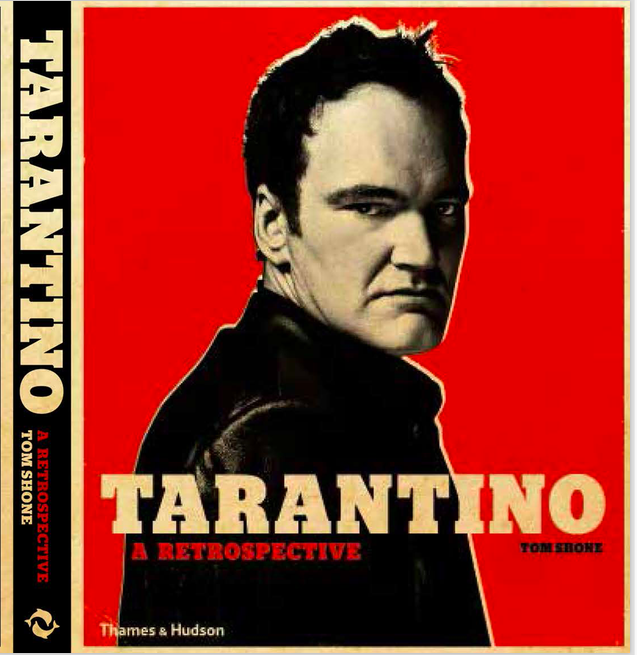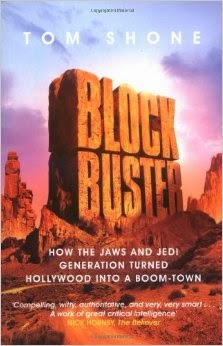skip to main |
skip to sidebar

'I threw myself into reading a lot of first hand accounts by people who've been there, a lot had been compiled by the imperial war museum. Joshua Levine had compiled a book called Forgotten Voices of Dunkirk, he came on as a historical advisor. I spent a lot of time talking with him, reading materials that he was able to find me. Then we were able to have the great honor and privilege of actually going and speaking to people who had been there. Obviously at this point, veterans of Dunkirk are very old and there are not that many left, but some of them very graciously gave us their time, and we were able to actually talk to them about what it was like to be there. One of the stories that stuck in my head and worked it's way into the film was a veteran telling me about watching people just walk into the sea, just as if they're going to swim. I asked him were they literally trying to swim back to England or swim out to the boat, were they killing themselves? He didn't know. He knew they were gonna die. It's a chilling thing to hear.
My pitch to Warner Brothers was, we're going to put the audience into the cockpit of a Spitfire and have them dogfight against the German Messerschmitts. We're going to put them on the beach, feeling the sand getting everywhere, confronting the waves. We're going to put them on small civilian boat bouncing around the waves on this huge journey heading into this terrifying water. It’s virtual reality without the goggles. I knew that I didn't want to make a film that could be dismissed as old-fashioned, something that wasn't relevant to today's audiences. What that ruled out for me immediately was getting bogged down in the politics of the situation. Seeing the generals in room. Seeing Churchill. We don't have Generals in rooms pushing things around on maps. We don't name the enemy. We barely glimpse the enemy. It's really about a survival story. I wanted to go through the experience with those characters. We were very, very clear that rather than using CG recreations of British destroyers, we were trying to find ship and birds that matched closely as possible rather than computer generate them. We would find the planes, the real planes, and fly them in real dogfights against each other and actually get the camera, get the actor up in the plane. We were going to do this for real as far as possible.
You have to go to the experts. We got a chap called Dan Freeman who owns like six spit fires and is a fantastic flier himself. We got them involved in the stage to talk about the real characteristics of the planes, how they flew, how they can fly, what G-forces the pilot can really sustain. When people do these dogfights using these computer generated planes, they inevitably violate the real laws of physics. We want to teach the audience how difficult this would be. How you bank chasing a plane and try to shoot it you have to get your gun sight ahead of it and anticipate how far it can move, what wind is going to do to the bullets and the tracer fire. Nothing crashed that wasn't supposed to. There was a rumor many months ago that I bought an antique plane and crashed it. We didn't do that. We built replicas.I think that for me the marine stuff was the most challenging. Even though this was by far the most complicated set of aerial scenes I've done, I'd done aerial work before on films like Dark Rises; I knew the pilots, I knew the cameraman, I knew how I would approach it, I knew how to split that work up. And I've done a lot of land-based action — not with a ton of extras, this was the biggest I've done — but I sort of worked my way up to it through the Dark Knight films and so forth. Boats, that was an entirely new thing for me. And very, very challenging.
I spoke to various filmmakers who'd shot in water before — spoke to Spielberg, spoke to Ron Howard about it, got some great advice. Both Steve and Ron very clearly felt that the best camera mode for shooting on a boat is handheld — even though we were shooting IMAX, because the camera man could steady themselves against the movement of the boat. That really proved to be the case. That's the way you get it done. It was very important for me to talk to actors before they read the script, which was very short — 75 pages, 76 pages, the shortest script I've ever written. Half a normal script. Very little dialogue, no back story. Just hints. So for example, when I went to talk to Mark Rylance about it, it was very important for him to understand the boat and to feel the tiller. He needed to feel the boat, to find how the physics of the situation could inform our understanding of the humanity of the character. The younger actors got very excited by that idea. It was vital for them, being there on the beach, being there out in the water. They're just really being in the elements and experiencing it and moving through it as people would have at the time.
We knew the water was going to be a huge component of what the actors were going to have to go through. They were gonna have to be in the water, out in the open, in the Channel — not for individual shots, but for the whole shoot — so it was very important that they be trained to deal with that safely. Our stunt guys put together a team of instructors. They did a lot of intense physical training for weeks where they would run in the waves, swim in the waves, get used to being in rough hazardous conditions. I think it was a shock to some of them, what was going to be required. The first shooting day was in some of the worst weather — very few film crews would gave carried on shooting. But for us, it looked marvelous with all this amazing foam washing up the beach. I’m known in the film business for having good luck with the weather. That's actually inaccurate. I often have terrible luck with the weather, but my philosophy is to shoot no matter what the weather is until the safety officer shuts us down. We tried to be opportunistic with how we shot. Grab the bad weather scenes when the weather's really bad, but always shooting, just keeping going, keeping going, no matter what the conditions are, as long as it's safe.
My cameraman Hoyte van Hoytema and myself put wetsuits or drysuits on; he had housings made for the cameras so they could go out in the waves; when it came to open water work, the camera could actually float out on the water — half in, half out. We're in there, swimming with them. I firmly believe in leading from the front. The fact that we were able to be out there with them and a part of the same physical elements they were dealing with, to some extent, experiencing what they're experiencing, was very much the spirit of those scenes. Being in it together and not sitting in a tent looking at video, I think it's vital for this kind of film. By the end of the film the idea behind Dunkirk that we're trying to get across to the audience is, it's not about individual heroics. It's about communal heroism. It's about the tremendous sense of community that was vital to the success of the operation. That's what makes the unique story and that's why I think it's always served as something of a rallying point for British people. I also think it's a very Universal story. It's really about the individual drive for survival. And the very universal concept of a desperation to get home.' — Telegraph

'The second season to Top of the Lake took Kidman back to her roots in suburban Sydney where she grew up, and where, in the series, Elizabeth’s Moss’s detective is on the tail of a prostitution ring. Kidman plays a feminist matriarch with a glorious cascade of grey hair, whose dinner table abounds with talk of Germaine Greer and revolutionary politics, but whose relationship with her adopted daughter, played by Campion’s own daughter, Alice Englert, has degenerated into a haggard war of attrition. Kidman’s performance — ferocious, knotted, full of thwarted love — joins a growing throng of mothers she has played in recent years, from her saintly adoptive mother in Lion, to her Medea-like, murderously fierce mother in Alejandro Amenábar’s The Others. Kidman’s moms are as indomitable as Pacino’s gangsters.
“The strongest force I can find within me, right now, is the maternal force,” she says. “Romantically I'm obviously incredibly awake and alive. I have a really, really strong, good marriage. But maternal love brings you to your knees. It's surfacing in pretty much everything I do.” What lends this weight is the hard-fought and at times torturously winding nature of Kidman’s own path to motherhood. The woman has had to fight. Two miscarriages. Two adopted children with Cruise. A miraculous, unexpected late pregnancy with, and finally, a fourth daughter, born via surrogate just a few years ago. The plot of Top of the Lake: China Girl, too, touches on surrogacy, which in Australia is still illegal, feeding a black market. “Jane said to me, ‘Would this be a very difficult place for you to go in terms of what the theme of this is?’ And I said, ‘No, because my story seemed very different.’ It was agreed upon and it was a very beautiful thing, which a woman chose to give us. It was an incredible gift that she did.”
The role brought her home in other ways, too. Kidman’s own mother was a nurse who sacrificed her career to raise a family but remained active in the woman’s movement of the 1970s. “I grew up in that world of feminism,” says Kidman. “I grew up watching those dinner parties. That's been my life since I was probably four.” If actors have long enough careers, they often end up playing their parents at some point. Brando burst onto the scene playing rebels, wounded and bristling against authority, but his maturity was reached when he stepped into the shoes of colonel Kurtz and Corleone: the very authority figures his youthful rebellion presupposed, viewed through a glass darkly.
Kidman as a teenager was a handful, hitting the clubs in Sydney by the time she was 14 in tutu, fishnets, and lace-up black boots, fighting with her mother every step of the way. Her fights with her tearaway daughter in Top of the Lake: China Girl thus played like re-matches with her own teenage self, this time from her mother’s point of view. “Absolutely. I can do, and wear, and behave any way I want, and screw all of this. Absolutely. And, I'm gonna be with any man that I want, and who cares about your beliefs? Totally. So, I've come at it from both sides, which is why Jane is so clever, because was she was able to sort of flip things. She’s incredibly perceptive.”' — from my interview in the Sunday Times






















